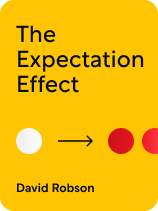

This article is an excerpt from the Shortform book guide to "The Expectation Effect" by David Robson. Shortform has the world's best summaries and analyses of books you should be reading.
Like this article? Sign up for a free trial here.
Do you have trouble sticking to a workout routine? Do you struggle to maintain a healthy diet? What are common barriers to a healthy lifestyle?
Working out every day isn’t easy, but The Expectation Effect by David Robson contends that the reason is more psychological than physical. If you convince yourself that you’re not able to get the workout done, then you’ll never be motivated to finish it.
Here are the psychological barriers to a healthy lifestyle that many people face and how to overcome them.
Physical Limits in Sports and Exercise
Robson reports that your barriers to a healthy lifestyle might be more psychological than physical. Your brain predicts how much effort you can expend and at what intensity and limits your performance accordingly. It makes sense for the brain to tend toward conservative estimates of our physical capabilities, which can help us to conserve energy and control the risk for injury.
(Shortform note: Though Robson emphasizes that your physical limits are psychological, experts note that you need to consider the brain and body together. In Endure, Alex Hutchinson explains that your limits aren’t all in your head but that changing your brain’s interpretation of your body’s signals can increase your endurance. Still, you need to be physically and mentally capable of pushing past your limits: Without working on both, you can’t perform at your best.)
To get around the physical limits your brain sets for you, try these tactics:
1. Think About Your Everyday Physical Activity
First, Robson recommends that if you don’t consider yourself fit or athletic, think about the physical activity you engage in by working or doing chores. Researchers (who call this “invisible exercise”) find that you’re much more likely to experience physical benefits if you recognize these activities as exercise. This can also boost your opinion of your fitness, which can make workouts feel less exhausting.
(Shortform note: What Robson calls “invisible exercise” often appears in studies as “Non-Exercise Activity Thermogenesis,” which scientists define as the energy you expend on spontaneous physical activity. While social and environmental factors tend to determine how much of this activity you get in a given day, experts agree that you can work more movement into your day (for example, by cleaning or playing with a pet) to reap the benefits of physical activity without having to go to the gym.)
2. Use Visualization to Improve Your Performance
Next, it may help to visualize yourself completing your workout to the best of your ability. Because your performance depends on your brain’s predictions, you can use visualization to teach your brain what your body can achieve and get around the limits it’s created.
(Shortform note: Experts say that to use visualization to improve your performance, you need to make it a multisensory experience. Imagine how it feels to perform a routine or achieve a particular outcome from start to finish, focusing not just on the goal but on the process of achieving it.)
3. Reframe Discomfort and Fatigue
Finally, Robson advises that when you start to feel discomfort during your workout, reframe the sensation. Instead of interpreting it as a signal that you need to stop, see it as confirmation that you’re working your muscles, improving your stamina, and having a positive effect on your body.
(Shortform note: To push through workout fatigue, it helps to have specific strategies in mind rather than trying to ignore exhaustion. Experts recommend trying to smile, repeating positive statements when you feel tired, practicing pushing through the difficult part of your workout, and even consuming caffeine before your workout.)

———End of Preview———
Like what you just read? Read the rest of the world's best book summary and analysis of David Robson's "The Expectation Effect" at Shortform.
Here's what you'll find in our full The Expectation Effect summary:
- Why you should rely on your body, not the universe, to make you happier
- How your brain can control your health, longevity, and quality of life
- Why you should focus on the benefits of getting older, rather than fearing it






